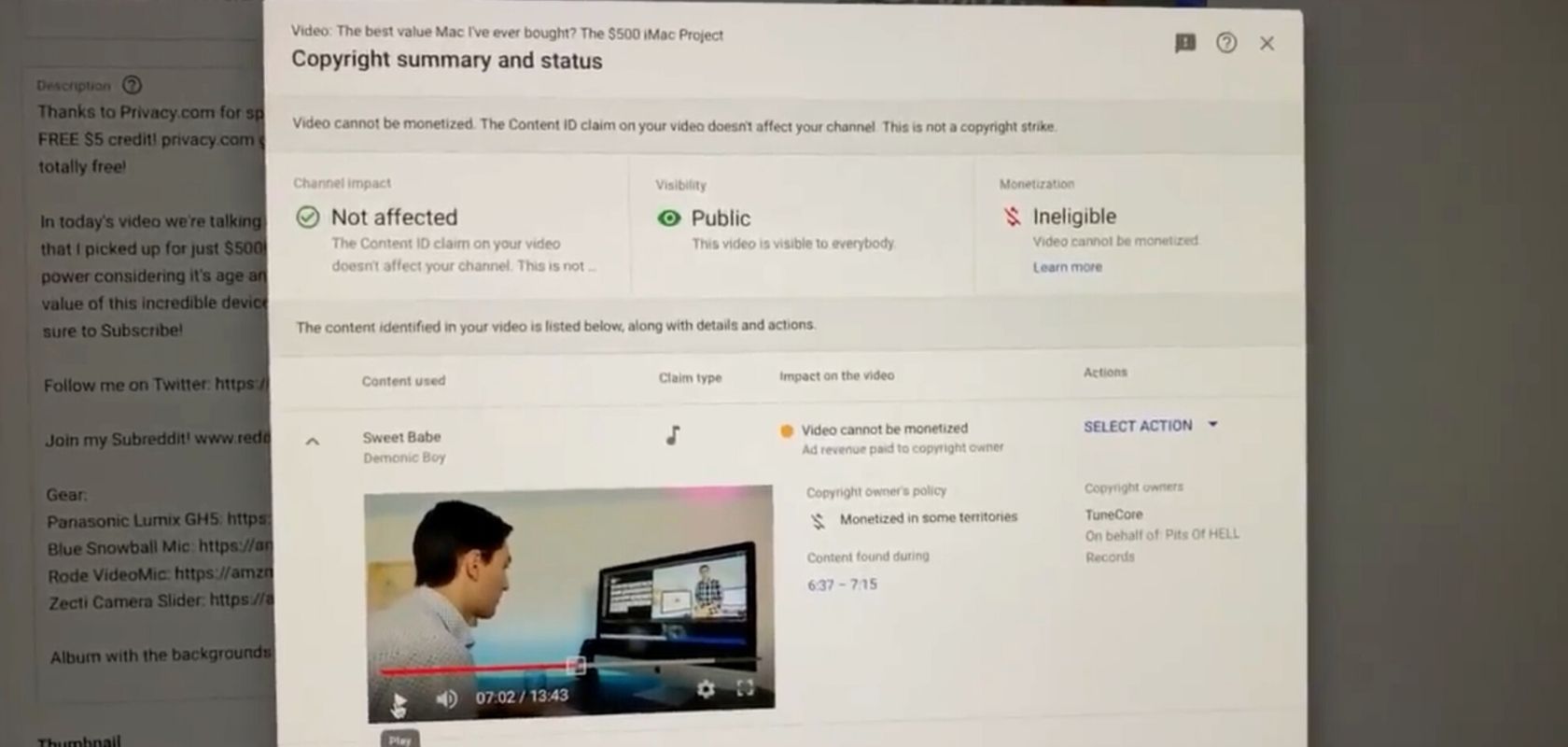Popular tech YouTuber Luke Miani tweeted this morning about how “busted” YouTube’s copyright claims system is, allowing people to “take free music from other YT creators, reupload it, copyright it, then claim other videos that use that song.”
Luke Miani’s YouTube channel focuses on tech-related videos and reached 100k subscribers earlier this month, which means it’s just starting to become lucrative for him to the point of taking it seriously if a video gets claimed. Not only that, but this kind of malicious attack can easily be used by a bitter troll to target other videos of his similarly, by claiming that they’re using music that the troll owns, without the need to present any proof of ownership.
Click here to display content from X.
Learn more in X’s privacy policy.
By law, the way DMCA takedown requests work is that they inform the platform or hosting provider of copyright-infringing content, presumably by the owner of the content. The platform or hosting provider is then responsible by law to take down the infringing content.
However, as we all know, the law is almost always imperfect, especially when it comes to matters of new technologies and the way YouTube has implemented this. At the end of the day, YouTube takes action against reported videos out of legal liability (even though the way YouTube operates has by some legal experts been called illegal) and a potential sense of responsibility, not out of a sense to protect users’ intellectual property or copyrighted content.
Another Twitter user Jake Webb (Suddy) replied to Luke’s tweet saying: “So I was making beats in garage band right. I use using some of Apple’s free loops in them. Used them In some videos and got copyright striked cause someone did a song and used a load of the loops. Like wtf”
Click here to display content from X.
Learn more in X’s privacy policy.
This means that YouTube automatically assumes that all claims are genuine and honest and that no one would ever abuse them maliciously to affect someone’s livelihood. It seems that verifying the ownership of a piece of music is far too much work for YouTube to do, and it clearly doesn’t feel that the livelihood of its content creators, that quite literally keep the platform alive and attractive to advertisers, is worth that bit of extra work.













